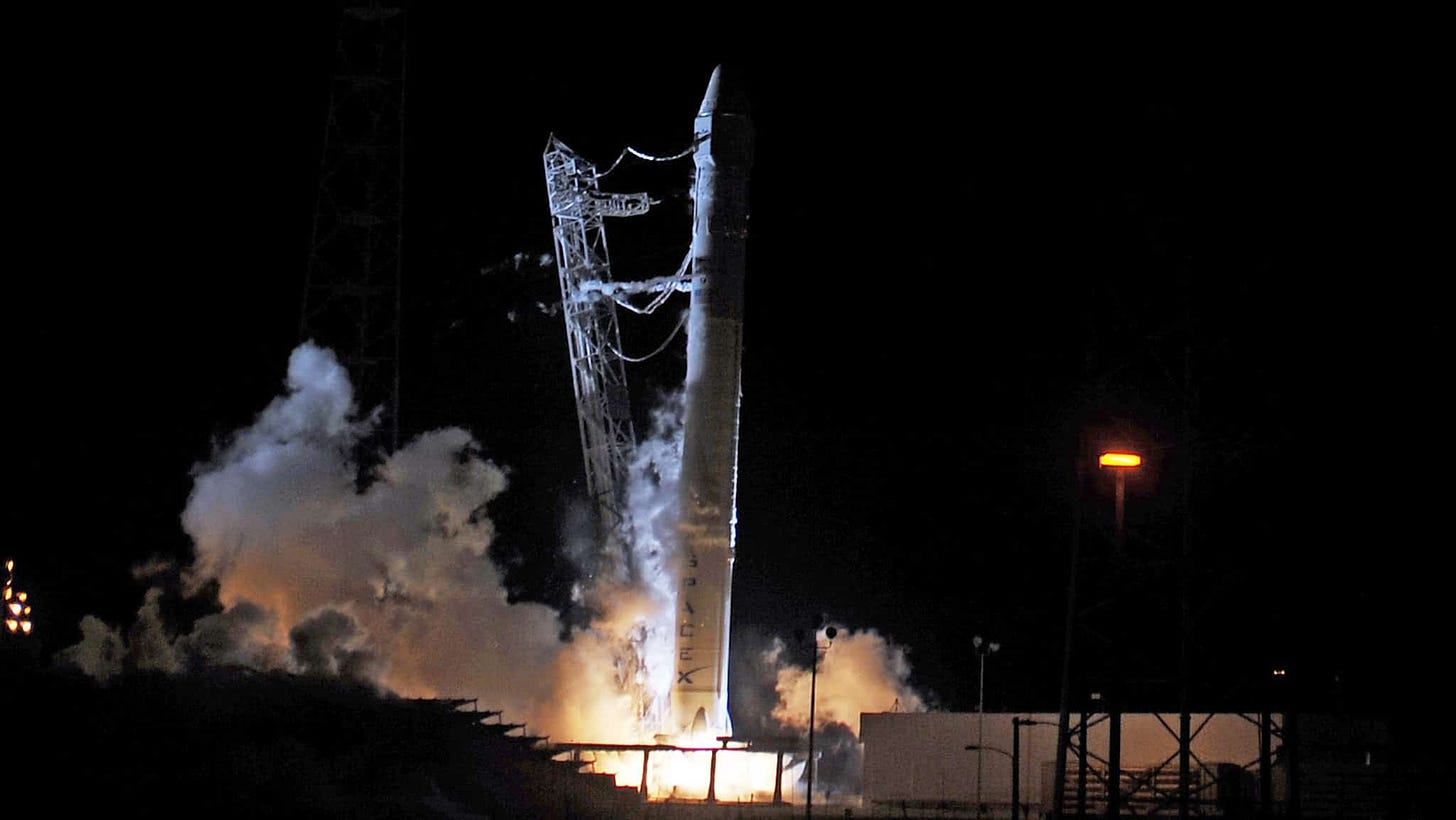The Multibillion Dollar Rocket War
SpaceX revived space. Now competition is heating up.
by Rod D. Martin
May 13, 2015
In the last few years, Elon Musk's SpaceX went from being derided as a "risky venture," "doomed to fail," to a multibillion dollar business with extremely profitable contracts in both the private and public sectors.
Elon's the most famous. But Elon's not alone.
CNBC's Clay Dillow wrote yesterday on SpaceX's competitive prospects going forward.
Last week's crew capsule test marks the latest in a string of successes for SpaceX over the past half decade. In 2010, many legacy aerospace companies working in the launch space viewed SpaceX (the No. 2 2015 CNBC Disruptor) as an unrealistic upstart that didn't appreciate the harsh technical and cost realities of the spaceflight business.
In the years since, SpaceX has simply redefined those realities. It has brought modern design and cutting-edge manufacturing into everything it does, leveraging technologies like 3-D printing to trim cost and weight from its rocket components. Its supply chain is completely vertically …



